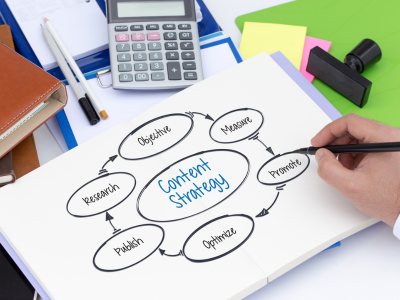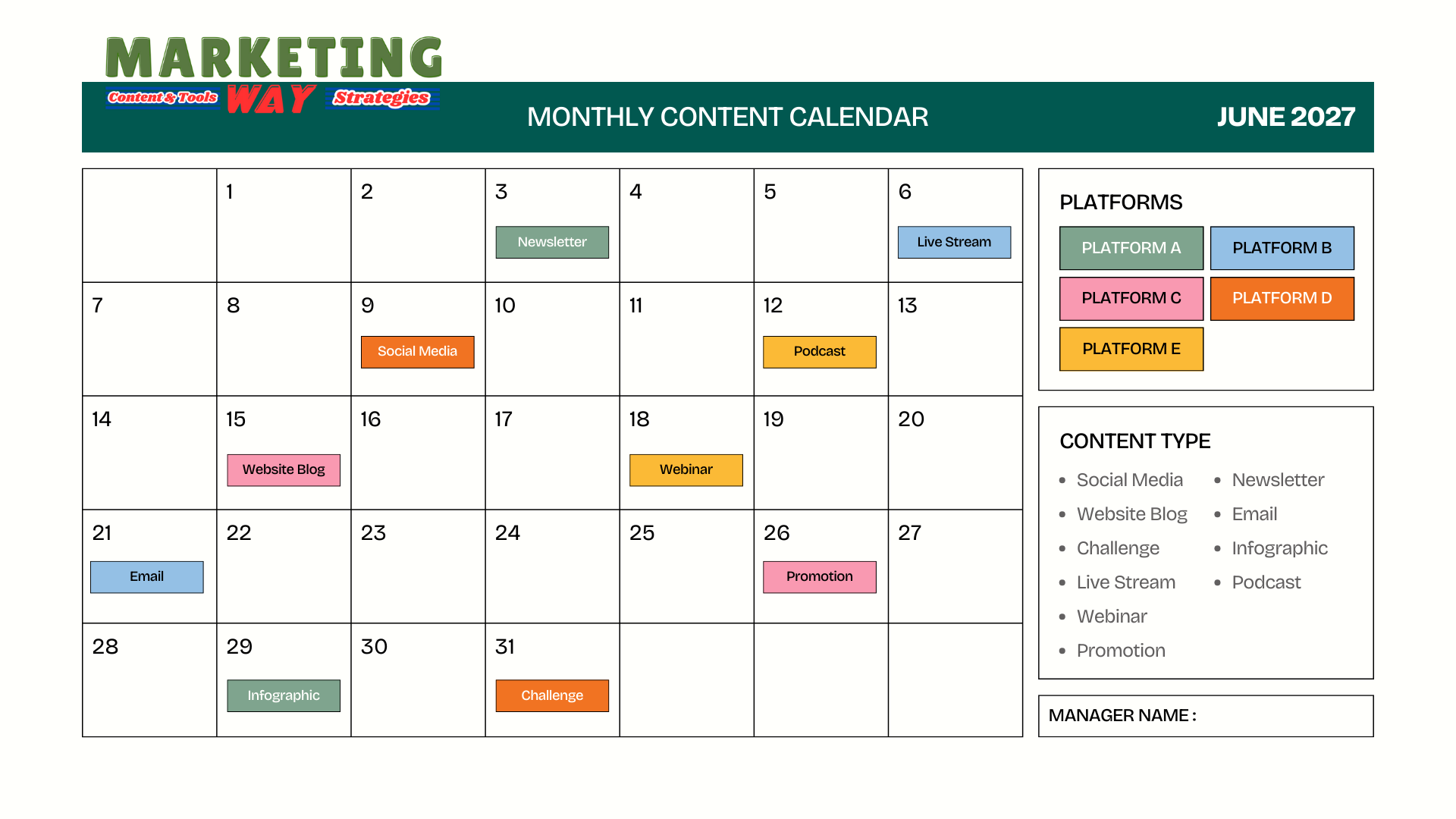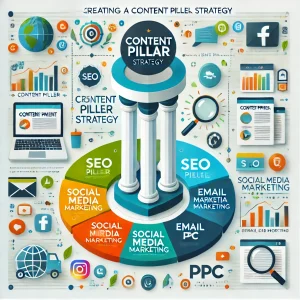Content marketing has become a cornerstone of successful digital strategies, enabling businesses to engage their audiences and achieve long-term goals. With the right approach, content marketing can help you build brand awareness, drive traffic, and convert leads into loyal customers. This article explores how to develop an effective content marketing strategy to maximize your online potential.
What is Content Marketing?
Content marketing refers to the creation and distribution of valuable, relevant, and consistent content to attract and retain a clearly defined audience. Unlike traditional advertising, content marketing focuses on delivering value rather than overtly promoting products or services. This approach builds trust and positions your brand as an authority in your niche. Learn more about content marketing in this introduction to content marketing.
Why is an Effective Content Marketing Strategy Important?
Developing an effective content marketing strategy ensures your efforts are purposeful and aligned with your business objectives. Key benefits include:
- Improved Audience Engagement: Tailored content fosters deeper connections with your audience.
- Higher Conversion Rates: Valuable content guides prospects through the buyer’s journey.
- Cost-Effective Results: Content marketing delivers long-term value compared to paid advertising.
- Enhanced SEO Performance: Quality content improves search engine rankings and visibility.
Steps to Create an Effective Content Marketing Strategy
To craft an impactful content marketing plan, follow these steps:
1. Define Your Goals
Start by identifying what you aim to achieve through content marketing. Common objectives include:
- Increasing website traffic
- Generating leads
- Boosting brand awareness
- Educating your audience
Set SMART (Specific, Measurable, Achievable, Relevant, Time-bound) goals to ensure clarity and focus.
2. Understand Your Target Audience
An effective content marketing strategy hinges on knowing your audience. Create detailed buyer personas that include:
- Demographics (age, gender, location)
- Interests and behaviors
- Pain points and challenges
- Preferred content formats
Download the Buyer Persona Template here
3. Conduct Keyword Research
Use tools like Google Keyword Planner, Ahrefs, or SEMrush to identify high-volume keywords relevant to your niche. For example, keywords like “effective content marketing strategy” and “content marketing best practices” can guide your topics.
Anchor keywords within your content naturally and ensure they fit the context seamlessly. Learn more about this in definition and role of content marketing.
4. Choose Content Types

Diversify your content to cater to various audience preferences:
- Blog posts: Informative and SEO-friendly
- Videos: Engaging and shareable
- Infographics: Visually appealing summaries
- Podcasts: Convenient for on-the-go learning
- Case studies: Real-world success stories
5. Plan Your Content Calendar

A well-structured content calendar ensures consistency. Include:
- Topics
- Publishing dates
- Responsible team members
- Targeted keywords
6. Optimize for SEO
On-page SEO is crucial for visibility. Best practices include:
- Using relevant keywords in titles, headings, and meta descriptions
- Structuring content with H1, H2, and H3 tags
- Including internal and external links with relevant anchor text
- Optimizing images with alt text
Example: When discussing “effective content marketing strategy,” hyperlink to a trusted source for additional insights. For a comprehensive guide, check out Content Marketing: Effective Strategies for Building Your Brand in the Digital Age.
7. Create High-Quality Content
Focus on producing content that is:
- Informative and actionable
- Engaging and easy to read
- Backed by data and credible sources
- Original and free of plagiarism
8. Promote Your Content
Leverage multiple channels to amplify your content’s reach:
- Social Media: Share on platforms like Facebook, LinkedIn, and Instagram.
- Email Marketing: Distribute newsletters with links to your latest posts.
- Collaborations: Partner with influencers or guest bloggers.
9. Monitor Performance
Use analytics tools to measure the success of your content marketing strategy. Key metrics include:
- Website traffic
- Conversion rates
- Engagement metrics (likes, shares, comments)
- Bounce rate
Adjust your strategy based on data insights to improve results.
Common Challenges in Content Marketing
While content marketing is effective, it’s not without challenges:
- Content Saturation: Standing out in a crowded market requires unique and valuable content.
- Time Constraints: Consistent content creation can be time-intensive.
- Measuring ROI: Determining the exact impact of content marketing efforts can be tricky.
Overcome these challenges by staying adaptable and leveraging tools for automation and analytics.
Case Study: Successful Content Marketing in Action
Take the example of a small e-commerce brand specializing in sustainable products. By implementing an effective content marketing strategy, they achieved the following:
- Blog Content: Published SEO-optimized articles on sustainability tips, driving a 40% increase in organic traffic.
- Social Media Campaigns: Shared user-generated content, boosting engagement rates by 50%.
- Email Marketing: Sent personalized newsletters, resulting in a 25% uptick in sales.
Tips for Long-Term Success
- Stay Updated: Trends in content marketing evolve. Regularly update your strategy to align with industry changes.
- Repurpose Content: Maximize ROI by repurposing blogs into videos, podcasts, or infographics.
- Engage Your Audience: Respond to comments and encourage feedback to foster community.
- Focus on Quality: Prioritize value over volume. One impactful piece can outperform multiple mediocre ones.
Conclusion
An effective content marketing strategy is essential for any business aiming to thrive in the digital landscape. By defining clear goals, understanding your audience, and delivering high-quality, SEO-optimized content, you can achieve sustainable growth and establish your brand as an industry leader.
Start implementing these strategies today to unlock the full potential of content marketing for your business. For additional resources and guidance, visit Content Marketing: Effective Strategies for Building Your Brand in the Digital Age.



Leave a Reply